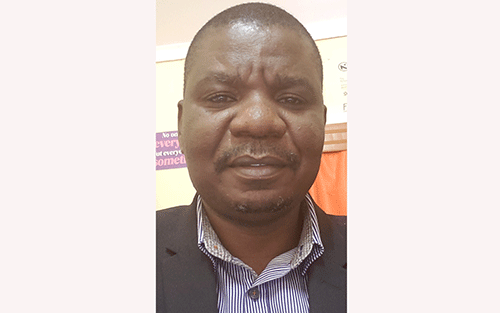Faustinus Shikukutu
Although Namibia as a country had made strides in changing the face of the country since the dawn of independence, notable shortfalls such as poverty, skyrocketing inflation, unemployment, bureaucratic procedures, unsustainable fuel and food costs, corruption, and poor service delivery continue to cause distress among citizens but no one is valorous to admit that along the way administrative blunders were made and continue to be made. Shifting blame had become the daily bread for those in power for the economic challenges faced by citizens.
External forces had been used as scapegoats for the struggles of the citizens. From the first citizen to graduates and ordinary citizens, everyone has someone to blame.
Poverty is blamed on colonialism, liquidation of Air Namibia is blamed on apartheid, unemployed graduates are blamed for not creating their own employment while graduates are blaming the education system for not preparing them with entrepreneurial skills and the market which are small.
Workers at government irrigation projects are blaming the government for the unproductivity.
CEOs of failing SOEs are blaming the board of directors for interference in their day-to-day administration, the board of directors are blaming the relevant ministries for lack of support in carrying out their mandate, and commentators or media who ask the accountability question are blamed for being unpatriotic and having sinister motives.
The people who ask for diversity in public appointments are accused or blamed for voting for the DTA during the 1989 elections while the colonisers are saying we told you, effective and efficient service delivery and administration will be your biggest enemy in running the country.
Who is to answer the accountability question and take the blame for all the distress suffered by citizens or will external forces continue to be the culprit until Jesus comes?
It is not fair or honest enough to shift the blame on external forces instead of acknowledging that along the journey, wastage of funds, tender inflations, bureaucratic procedures, corruption, and incompetence played or continue to play a role in the current state of affairs.
While we are blame shifting in Namibia, President Hichilema is fixing Zambia without any excuse after taking over a severely battered economy by stabilizing the economy and improving the currency (Zambian kwacha) to one of the best-performing currencies in SADC.
Not only did President Hichilema improve the economy and currency but also created jobs in both the health and education sectors while the inflation was reduced from 20% in 2021 to 9% today. President Hichilema although not a saviour had been a welcome upgrade to many Zambians.
One cannot deny the fact that colonialism had a hand in the underdevelopment of certain parts of the country but one also has to be bold enough to point out that the disappearance of public funds, increase in the number of legislatures, skewed priorities, and the list goes on, are some of the impetus for the country`s current conundrum although those in power are not brave enough to account for it despite christened “land of the brave” for the bravery during the liberation struggle. Just imagine if all the stolen money could be used to buy tractors for each constituency to plough for those not able to pay for subsidized GRN tractors, the issue of hunger could be allayed.
Bravery to account for mistakes made had been replaced by blame shifting. Consequently, continuous blaming is leading to snail’s improvement.
Where there is blame, open minds close, innovation tends to cease, and the desire to understand the whole system diminishes. When people work in an atmosphere of blame shifting, they naturally cover up their fallacies and hide their real competency.
And when energy goes into finger-pointing, scapegoating, and denying responsibility, productivity suffers because there is a lack of information about the real state of affairs. Shifting blame by shaming others and searching for something wrong with them provides an early and artificial solution to a complex problem.
Shifting blame thus makes inquiry difficult and reduces the chances of getting to the real root of a problem. Blame also generates fear and destroys trust. When blame is shifted, there is always a belief that other people have bad intentions or lack ability. The characteristics of blame are judgmental, defensive, anger, fear, punishment, and self-righteousness.
Answering the accountability question will help to recognise that everyone may make mistakes or fall short of commitments but taking action in rectifying own mistakes is key to moving forward. Becoming aware of own errors or shortfalls and viewing them as opportunities for learning and growth will chart the way to be more successful in the future.
Answering the accountability question will therefore create conditions for ongoing, constructive conversations in which our awareness of current reality is sharpened and in which we work to seek fundamental causes, understand the system better, and recognize new actions and agreements.
The attributes of accountability are respect, trust, inquiry, moderation, curiosity, and mutuality.
Shifting blame to others or external forces will never improve the situation but taking action will do. Rhetoric talking without actions will not bring change but implementation will.
Let’s reimagine by taking responsibility for our failures rather than shifting blame to external forces because people are now conscious of things happening around them compared to the ancient years.


